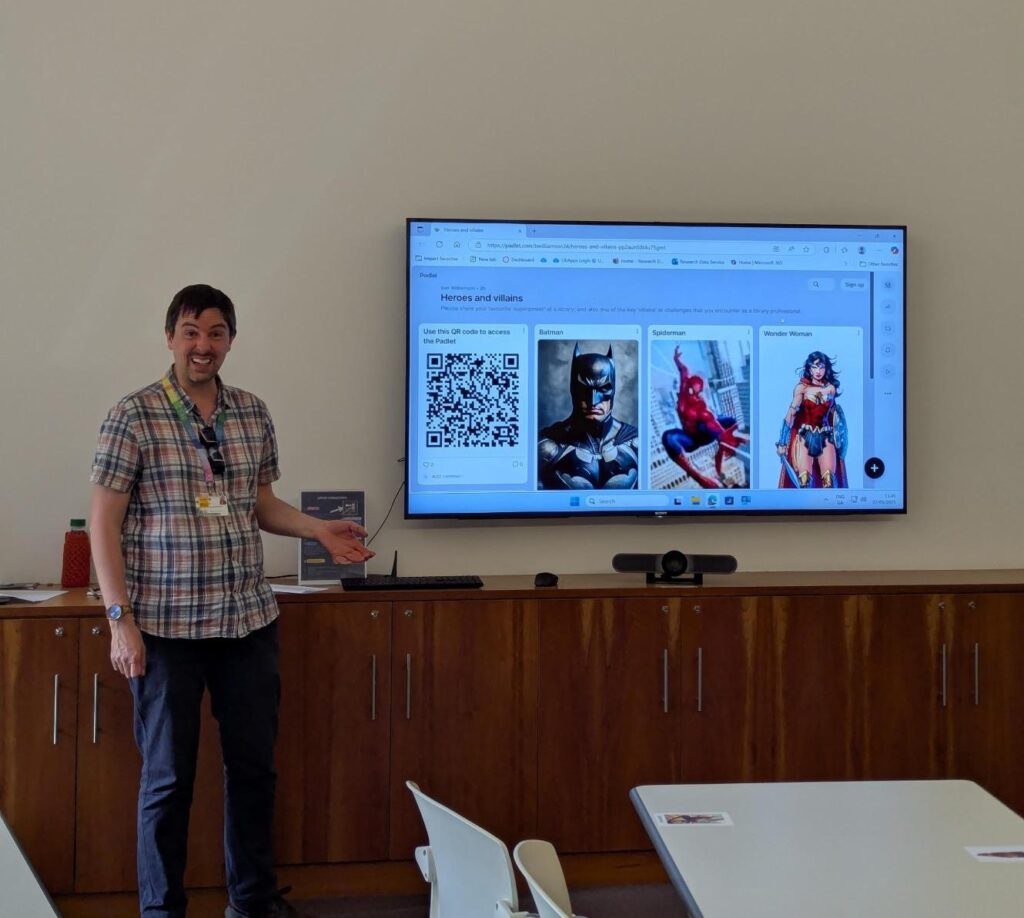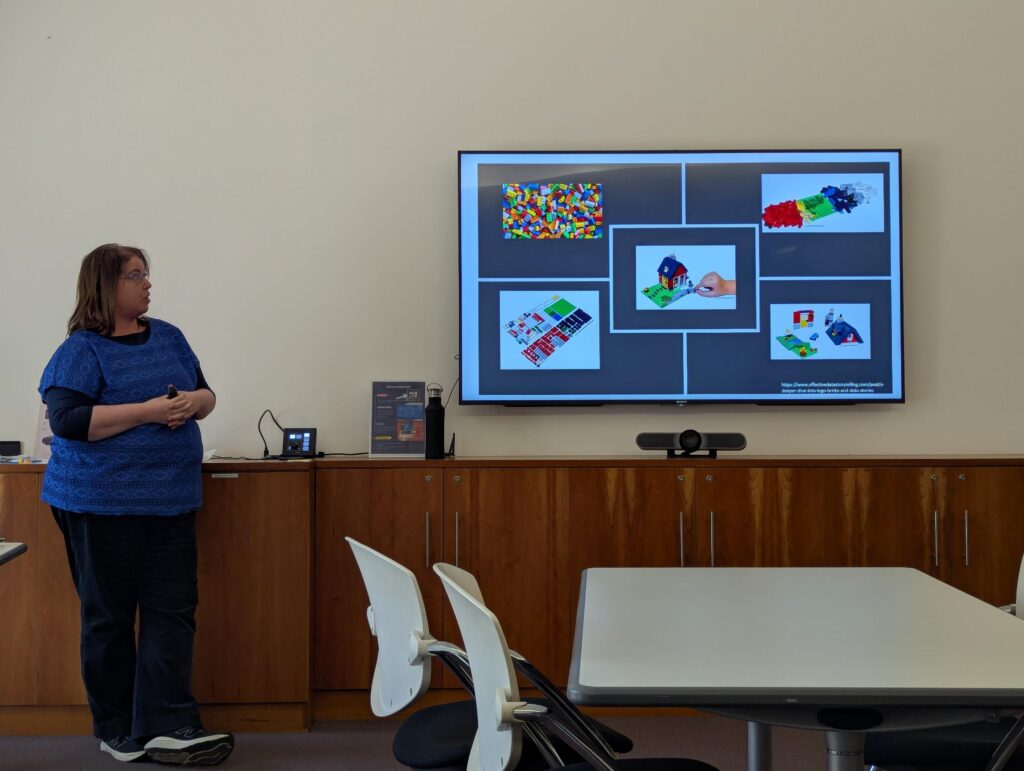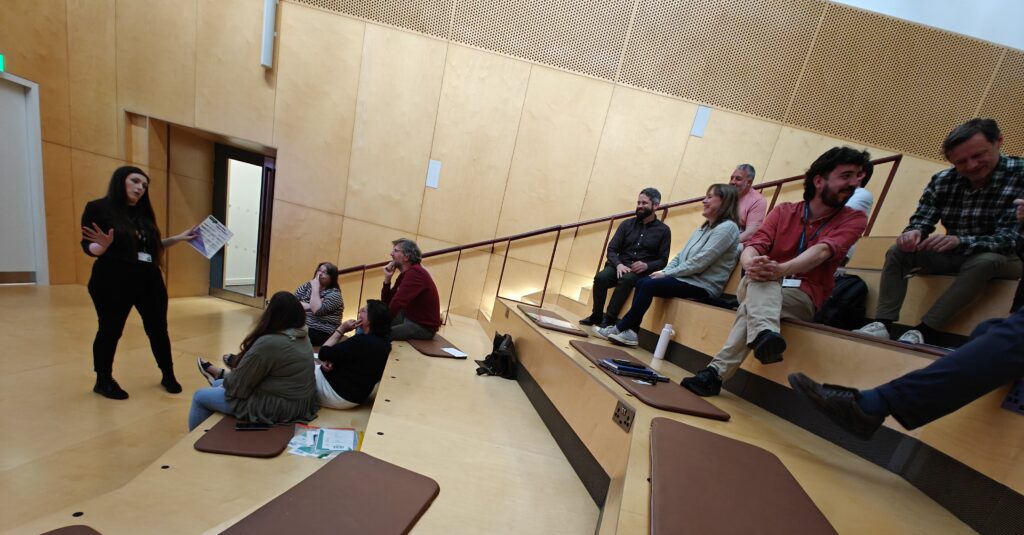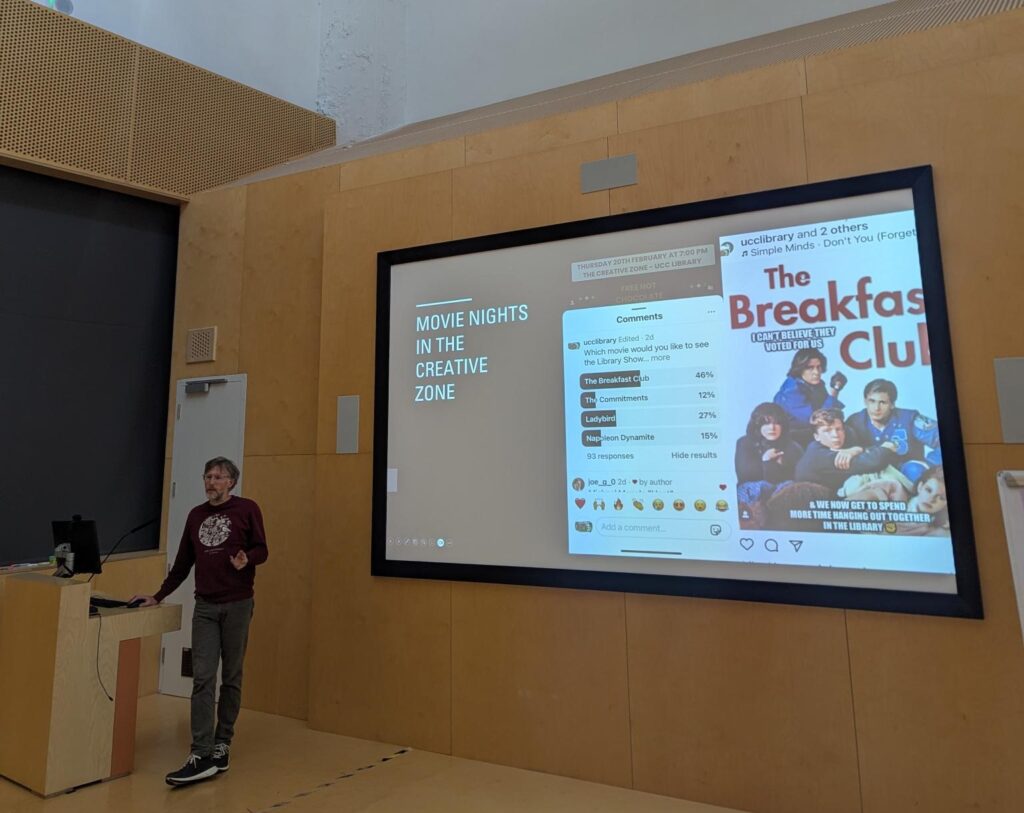Reimagining Engagement: Highlights from our Library Games Week
- Aoife Coffey
- August 5, 2025

Why?
Games aren’t just for play, they can be powerful tools for learning and engagement. To further investigate and showcase the potential of these approaches, UCC Library Research Services and the CPPD group organised a Library Games week dedicated to exploring games and gamification in the academic library context.
A quick literature scan reveals (see for example the American Libraries Association ALA) that games and gamification are an increasingly common feature in academic libraries used in a variety of circumstances and across different user groups. They can be utilised to enhance user engagement, enforce learning and teaching, and catch the attention of those users who are uninterested in the traditional library instructions or those who benefit from alternative learning modes.
For library services, they can be a valuable tool which enhances accessibility and helps break down barriers to engagement by presenting the library as inclusive and welcoming. Also, with the UCC Library Digital and Information Literacy Framework in mind, games and interactive experiences lead to a more holistic and inclusive social experience leaning into the principles of curiosity and openness which are core to the framework.
What did we do? – Recap on the UCC Library Games event
Our event invited library colleagues and the UCC community to participate in lightning talks and workshops featuring different games and interactive exercises. Activities included a variety of tools such as Lego, online polling tools (Vevox), collaborative tools (Padlet), ice breakers and other interactive exercises and games.

Day 1 Lightning talks and Lego Game
On the morning of Day 1 there was a series of lightning presentations and demonstrations focusing on ice-breaking activities. These included sock-fight from Elaine Harrington, Getting Creative With Words from Alfie Davis, Find Someone Who demonstrated by Mairéad Mooney and using Padlet for networking presented by Ben Williamson. All these activities were low input and preparation; they don’t take much time (5-10 minutes) but are great ways to encourage interaction and discussion for different groups creating a more comfortable environment for groups and participate in learning and discussion later in the session.
There was also a demonstration of using the online polling tool Vevox for interactive storytelling and in quizzes, opening the potential of this platform beyond simple polls and really embedding it in the learning experience by Stephanie Chen. The unconscious bias of library colleagues was also tested by Ronan Madden using Wason Selection to help learners engage in critical thinking.
The One Up One Down game demonstrated by Aoife Coffey provides a way to consolidate learning at the end of a session and to gain immediate feedback on aspects that could be improved in an informal and friendly way. All these activities require little set up and resources but can really enrich the experience of users and enable a positive and collaborative experience for all.

In the afternoon there was a brief presentation on using tools like video games and Lego for learning from Pádraig Mac Aodhgáin who recently joined UCC Library as a Data Steward. Lego Serious Play methodology outlines how it can be used to enhance communication creativity and problem solving by leveraging the hands-on, playful nature of Lego. We also learned that through video games we can interrogate complex real-world problems demonstrated by the McDonalds Video Game in which you need to run a successful food franchise whilst learning about the negative impact of such an enterprise on modern society, environment and health.
This was followed by a demonstration of Lego for Reproducibility game developed by Donaldson and Mahon at the University of Glasgow and demonstrated by Caroline Philpott and Aoife Coffey who have been using it for metadata workshops over the past few years. “The game addresses issues including planning for metadata, formats of metadata recording, standards and automation. The game also draws multiple parallels between recording and communicating the research process and documenting and the creation of a LEGO® model.” After a fun afternoon of Lego, there was an enthusiastic discussion about the potential for using the model demonstrated as a starting point for the development of other games and activities.
Day 2 – What about Open Science? and more lightning talks
Our Day 2 started with a demonstration of the game “What about Open Science?” developed by librarians Aisling Coyne (TU Dublin), Sarah Coombs (Leiden University), and Katrine Sundsbø (Directory of Open Access Journals). This game which was launched at the 19th Munin Conference in November 2024 in Tromsø, Norway, and is modelled on a game show where teams play against each other to gain virtual money that can be used to support institutional Open Science activities and strategies. Our guest speaker Aisling from TU Dublin demonstrated how participants learn about Open Science activities such as open access publishing and open data in an accessible and fun way. The game will be published as an Open Educational Resource so it can be adapted to local needs.

In the afternoon of Day 2 we again heard from UCC Library colleagues in another round of lightning presentations:
- ‘Themed Book Displays’ developed by Anne O’Callaghan in collaboration with various UCC groups and Societies
- the ‘Library Explorer Challenge’ which can get you a free cuppa from Mairéad Mooney
- Special Collections & Archives ‘Colour Our Collections’ project and Culture Night activities which linked our collections with the SDGs presented by John Rooney
- Some thoughts on how and what we should use games for in the future from Ben Williamson
The creative and inventive ways in which colleagues use our collections and library spaces to promote interaction and engagement is truly impressive.
We also heard about the program of activities rolled out by Alfie Davis, our Student Engagement & Employment Coordinator since he joined the library in September 2024. These include breakfast during the busy exam season, snacks and warm drinks late in the evenings when catering options are limited on campus, movie nights demonstrating the library as a social space and jigsaws by the lifts for momentary distraction. These thoughtful touches and interactions have not only supported students’ well-being but also help to foster a stronger sense of community within the library and ensure it is visible as a welcoming space for users.

Thoughts and Reflections
Colleagues reflected that the two days were a good way to learn more about activities already taking place across the library. It was highlighted that it is useful to learn from the experiences of others and to have honest and open discussions about what works and what doesn’t, and to learn about the practicalities of using each game or activity.
These two days helped to identify a shared enthusiasm for games and interactive activities across library units with options out there for all settings and user groups. For some colleagues this is a new approach but over the two days they found a supportive community within the library with opportunities for peer learning and a cohort of friendly reviewers for new activities.
Participants and presenters all agree that this is an area with huge potential and will keep the discussion open and creativity flowing.
*The method and setup instructions for many of the games described are outlined in the document linked below.
